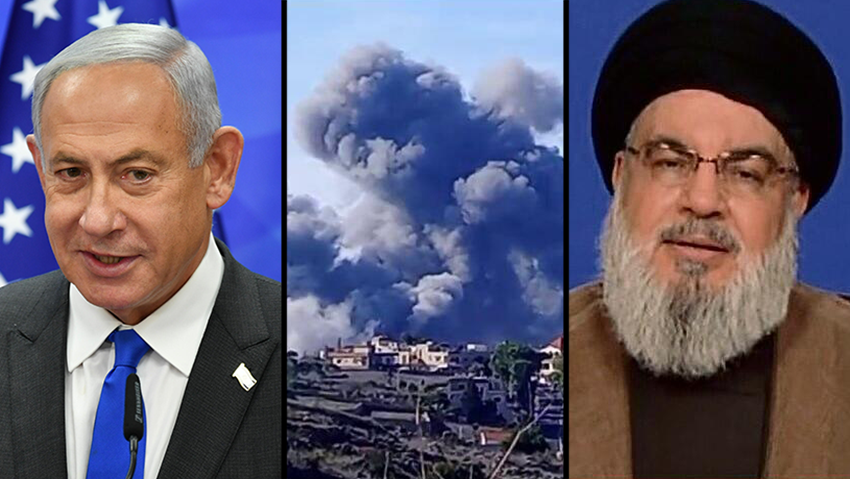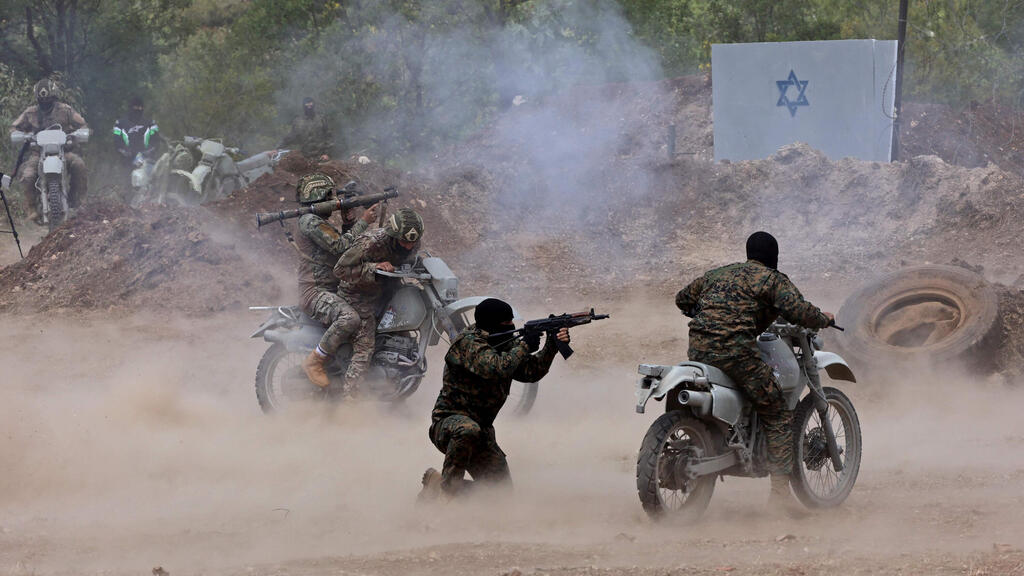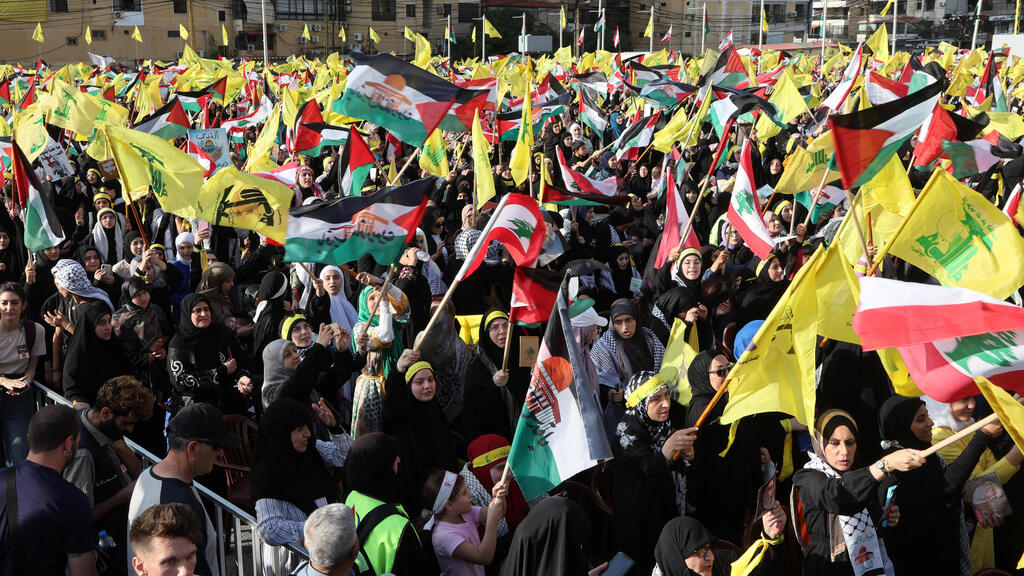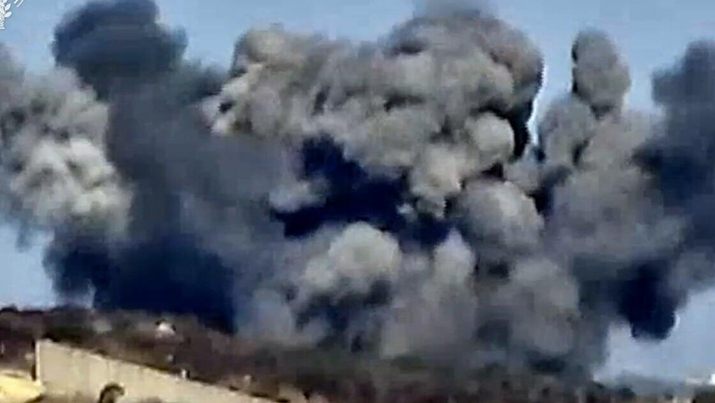Getting your Trinity Audio player ready...
Israeli leaders, the defense establishment and the media outlets, are focused on Gaza, as they should be but the northern front or as it is dubbed, the secondary front, cannot be ignored amid the ongoing fighting that has been intensifying over the past months.
More stories:
The IDF has increased its attacks on Lebanon and has thus far killed over 100 Hezbollah fighters, by the Iran-backed terror group's own admission, and likely more in reality. The group's vital ability to produce weaponry has also been affected.
4 View gallery


Benjamin Netanyahu, Israel strikes S. Lebanon, Hassan Nasrallah
(Photo: Yoav Dudkevitch, Twitter)
Hezbollah has been firing an extensive number of missiles at Israel and has succeeded in removing over 100,000 Israelis from their homes near the Israel-Lebanon border, creating a security zone on the Israeli side of the frontier rather than inside Lebanon, where an equal number of civilians have also left for safer areas.
The war cabinet has spoken in one voice when it said that the civilian population would not return home until Hezbollah's elite Radwan force is no longer a threat. Prime Minister Benjamin Netanyahu, Defense Minister Yoav Gallant and Chief of Staff Herzi Halevi said that toward that end there could be either war or a diplomatic initiative to move Nasrallah's forces north of the Litani River.
In the early days of the war, Gallant urged dealing Hezbollah a severe military blow, but Netanyahu rejected the plan which he and the American administration did not support. Now that there would be no element of surprise in a strike on the Iran-backed group, a full military conflict would inflict painful damage for both sides.
Israelis have never been subjected to Hezbollah's full fire power with an estimated 4,000 projectiles, including long range and precise rockets that would be directed at Israeli cities including the metropolitan Tel Aviv areas, each day. On the other side of the border, an unimpeded IDF would make the destruction of the 2006 war in Lebanon, to infrastructure as well as its capital, seem like a walk in the park.
But unlike in Gaza, the international community would not allow a war in the north to last long and at its end, Hezbollah would likely return to the border, faster than it had after the UN passed resolution 1701 ending the last one. So, what and whom would guarantee the safety of the residents of the Galilee?
Before miscalculations lead Israel into yet another armed conflict, the diplomatic alternatives that if successful, would remove Hezbollah for south Lebanon, must be considered
One suggestion was providing Hezbollah with an economic incentive that would bolster its political power in Lebanon, which is in a dire financial crisis, along with some modifications of the international boundary in the area of Sheba farms or Mount Dov as it is called in Israel.
Hezbollah leader Hassan Nasrallah has already rejected the notion of a troop withdrawal north of the Litani. In the face of his unequivocal response, and while the situation in Gaza would have to be the focus of most of the IDF's attention for a long while, and in what would be a trying economic time for Israel – the reality of the situation must be recognized and other solutions, considered.
Since 2006, Israeli governments have allowed Hezbollah to grow and pose a monstrous threat to the Israeli north. With 150,000 rockets – 10 times more than Hamas. Israel must therefore allow for creative but partial solutions that would be based on the Iran-backed terrorists removed a certain distance to the north, but not across the Litani, and the establishment of an international force, not UNIFIL which has proven ineffective, that would take action if and when Hezbollah violates the agreement, or else Israel would invade across the border to confront the terrorists with its military.
Such a solution would require the residents of northern Israel to return home, trusting that they would remain safe after they had witnessed the threat from Hezbollah grow, while their government chose to ignore what was happening.
The IDF plans to build a new border barrier, increase its deployment and provide communities with the means to protect themselves incase of an infiltration, the kind of means that were not provided to the communities on the border with Gaza, despite their repeated pleas.
Would that provide residents of the north with the maximum sense of security they want? Probably not, but the alternative would be a war that could ultimately fail to yield better results.
Inside the IDF, there are those who believe war is the better option and they provide considerable arguments to support that notion. In their view, the treat that emerged since 2006 is intolerable and would only increase in the future, therefore a relatively short conflict must be undertaken, or Israel would be made to pay a higher price in the future. "If we act decisively and professionally, we will weaken the axis of evil considerably," they say. "What Israel failed to do in 2006, it is paying for in 2023 and failing to take action now would result in an existential threat in the near future."
In any event, like Hamas, Hezbollah is here to stay. The question is whether Israel has learned the lessons of what would happen if it choses to ignore reality and burry its head in the sand.




